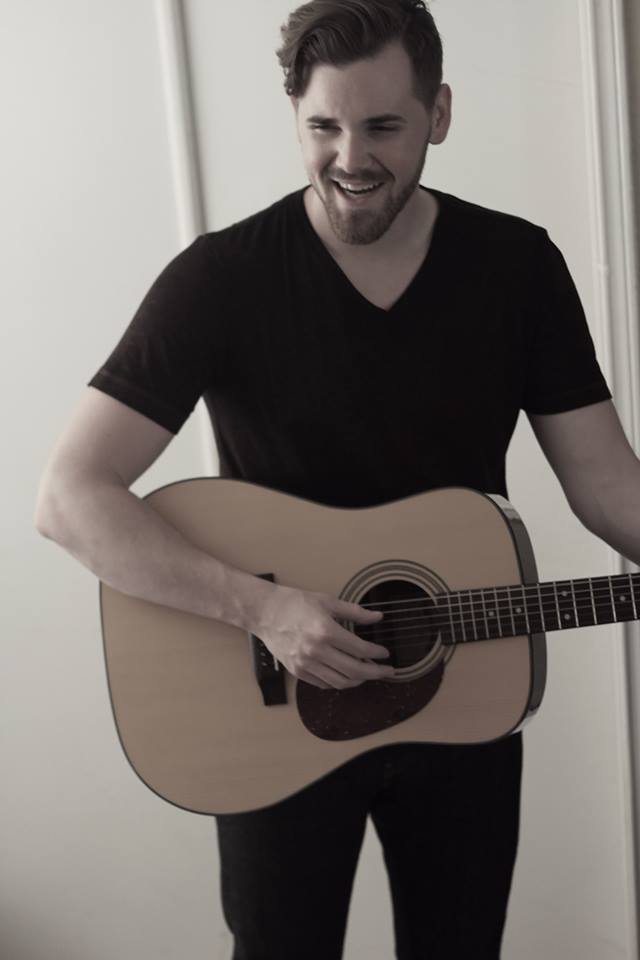Jeremy Parsons Interview Part 2
by Christian Lamitschka for Country Music News International
Lamitschka: Your current single is being played by radio. What do you feel is special about this song that makes people want to hear it?
Parsons: I think people can connect with it. It’s currently a very wayward time, and Lillian‘s a song about wayward souls finding each other. It’s natural, and it happens. We all have those moments in our lives. It’s part of our personal growth.
Lamitschka: What will your next single be?
Parsons: My next single will be Things To Come, the title track of the record. I wrote this song and immediately knew it had to be the title track and this project’s framework.
Lamitschka: What kind of songs do you like to record the most?
Parsons: I like songs in minor keys a lot. A lot of my more successful music has been in minor keys, most likely because I gravitate towards those so naturally that it comes across in the performance.
Lamitschka: What is your favorite song among all the songs you have recorded and what’s the story behind it?
Parsons: My favorite song I’ve ever written and recorded is the next single that I’ll put out off the forthcoming record of the same name, Things To Come. I wrote the song to commemorate the closing of an insane alcoholic and drug-fueled chapter of my life. I traveled everywhere I could and did whatever I would when I got there. It was a fairly dark time within my mind, but looking back, I realized it was so necessary for me to live through that and get the opportunity to learn and grow from it, which I did. I tried to write that song about three or four times before I felt I had it right. I can’t say I’ve ever had to do that with any other piece.
Lamitschka: How much creative control do you have over your music?
Parsons: I have all the creative control over the songs written, and the ones that I choose, who produces the record, the title of the project, you name it. I think that’s all so important. I never stay closed off, though. There are always so many people whose insight and notes make every project precisely what it should be.
Lamitschka: Do you have any interesting stories about how fans have been affected by your music?
Parsons: One of my favorites has to do with my lead-off single for my last Things I Need To Say record called Burn This House Down. I wrote that song about dealing with and working through my parent’s divorce. I had never really told that story yet, but at a show one night, a man walked up to me after my set and told me that song spoke to him and thanked me for it. He went on to say to me that he and his wife had just gotten a divorce after 15 years of marriage and that song was what it felt like for him. It was very emotional, and I gave him a big hug and thanked him for his story. Those moments always make me feel like I’m in the right place, doing what I should be doing.
Lamitschka: Who inspires you musically and how deep do your musical roots run?
Parsons: I’m a massive fan of Jason Isbell and his band, the 400 Unit. He’s one of those artists, and they’re one of those bands that when I go to a show, I feel I learn something about writing, performing, and being an artist. I wish there were more out there like them. I’m also majorly influenced by Hank Williams Sr. and John Prine. Two standouts as far as writers and personalities go.
Lamitschka: What do you think about today’s music scene versus its post and where do you see it going in the future?
Parsons: I feel and hope we might be in an excellent creative shift. There has been a lot of good music to come out in the last few years, but the mainstream is polluted, and you have to dig for the real gems. There’s been some inspiring stuff in between all that too that’s come to the surface, which has been fantastic, but we sure could use more artistic integrity and music that says something on more of a streamlined basis. I think we’re always going to see a lot of change; after all, it’s the only constant in life. We live in a time of forward-thinking as far as technology goes too. It’s helped the independent artist with the outreach, which is nice. I could see that continuing to play even more in our favor and eventually making the record label obsolete. It looks like that’s where it’s headed anyway.
Lamitschka: If you had the chance to change something about the music industry, what would it be?
Parsons: The people in charge would be a great start. I also wish more artists took charge of their own lives and careers.
Lamitschka: As an artist, you so many tasks such as recording, touring, interviews. What do you like best, what’s your favorite activity?
Parsons: I love the writing process and singing in general, but touring takes the cake for me. Nothing makes me feel freer than being on the road, just jumping from town to town and venue to venue.
